Boris Johnson resigns: What happens next
Boris Johnson is gone (almost). So what does that mean for Britain’s Conservative party and where do they go from here?
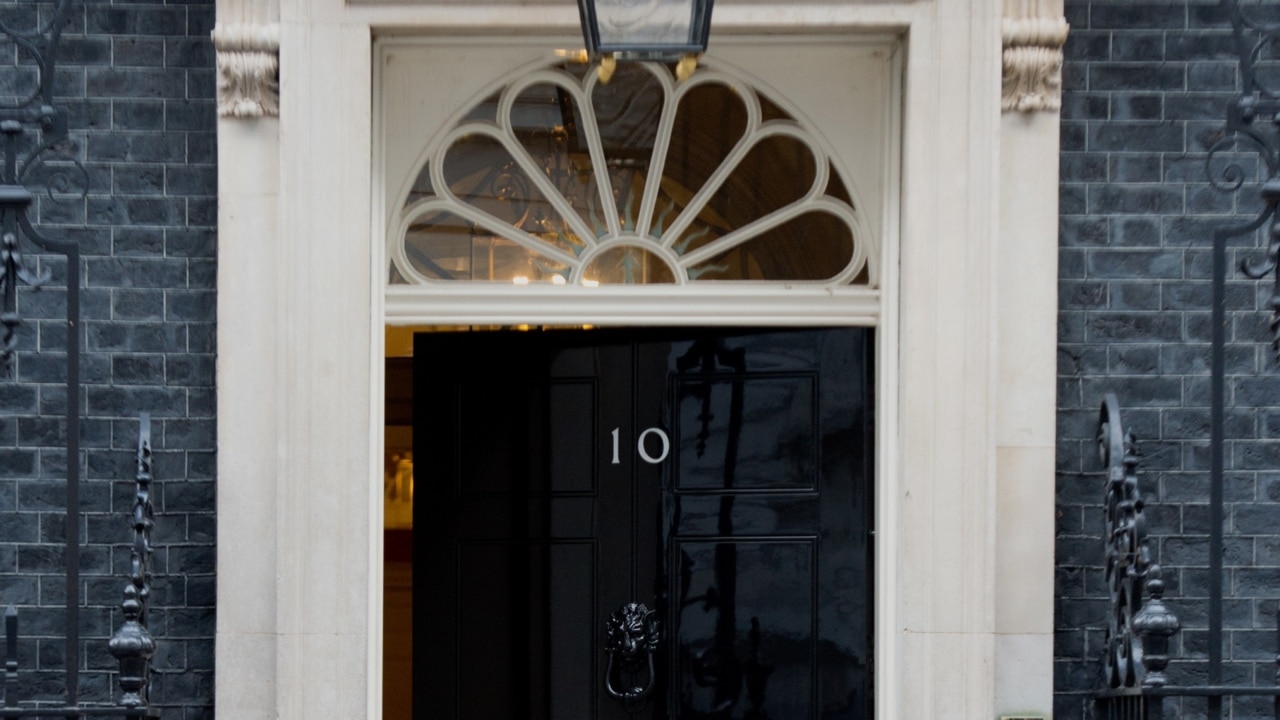
Britain will have a new prime minister after Boris Johnson fell on his sword and resigned from the top job. Mr Johnson’s resignation followed two days of carnage in Westminster, which saw a staggering 55 members of government step down.
So what happens next and where does Britain’s embattled Conservative party go to from here?
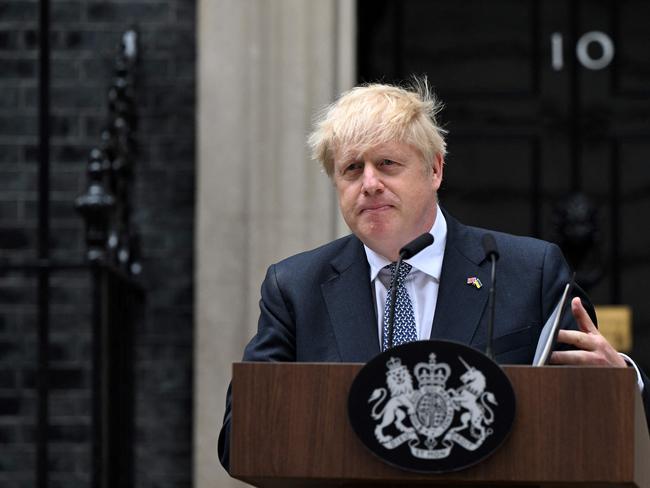
WHAT HAPPENS TO JOHNSON NOW?
Mr Johnson plans to continue as prime minister until a new leader of the Tory party is in place for the party’s October conference. The choice to carry on temporarily or go straight away is up to Mr Johnson. Conservative leadership elections are automatically triggered when a Tory PM resigns. But Mr Johnson has decided to stay on until his party picks a new leader.
WHO WILL REPLACE HIM?
If Mr Johnson chooses to step aside immediately, responsibility for leading the UK will fall to another Minister. There are no set rules on which Minister that must be.
But it is usually the case that the Deputy Prime Minister steps up to the role.
In this case, that would be Dominic Raab, who also currently serves as the government’s Justice Secretary. Mr Raab, if appointed, would stay in the top job until the party elects a new leader, who will then take over the role.
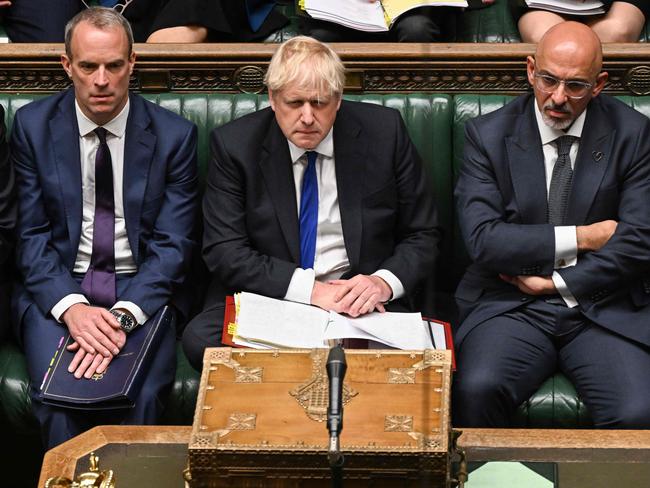
Likely candidates include: Rishi Sunak, Sajid Javid, Liz Truss, Ben Wallace, Nadhim Zahawi, Penny Mordaunt, Steve Baker and Tom Tugendhat.
A timetable for the leadership race will likely be announced on Monday with a replacement chosen by September.
COULD JOHNSON CALL AN ELECTION?
Under British law, an election can be requested by the prime minister at any time – and Mr Johnson hinted this week he would consider that route if he was forced out.
But to call an election without the OK of the government or the majority of your own MPs would be constitutionally very unusual, and would likely be resisted.
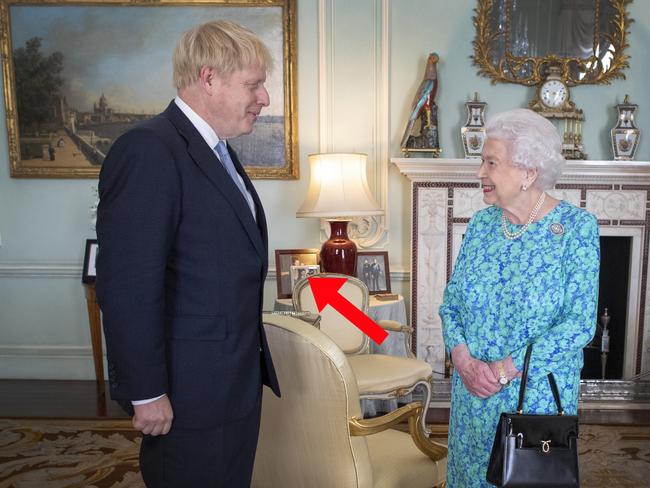
Under a constitutional convention known as the Lascelles principle, the Queen can refuse a request for an election for reasons including if the parliament is still deemed “viable”, if an election could harm the economy, or if a credible alternative leader existed. It has been reported in the UK that Buckingham Palace has been taking advice on what to do if Mr Johnson does seek such a snap election.
WHAT IT MEANS FOR BREXIT?
European leaders have said that Mr Johnson’s resignation could re-set fraught relations in the wake of a controversial Brexit. And those competing for Mr Johnson’s job will likely distance themselves from that legacy.
However, a future British government will not necessarily seek to reverse Brexit. Even Britain’s opposition Labour Party has ruled out rejoining the EU.
It means the UK will have to live with the economic fallout of its departure, which by the end of 2021 had dropped economic output by five per cent and investment by 14 per cent, according to John Springford of the Centre for European Reform. A more logical scenario, according to Reuters, is that Brexit will become an undesirable fact of life that has to be managed.
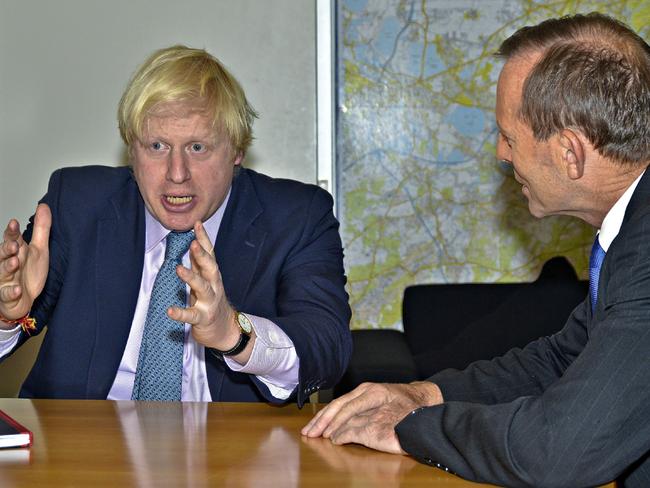
JOHNSON’S RELATIONSHIP TO AUSTRALIA
Former Australian PM Tony Abbott described Mr Johnson as a “great friend to Australia”, lauding him as a major force in the AUKUS deal to give Australia nuclear submarines.
“Politics is a hard and unforgiving business, but it’s essential for the wellbeing of nations,” Mr Abbott said, according to reports.
“He deserves our gratitude, especially on this day of personal disappointment.”
One act that won’t be forgotten by Australians was Mr Johnson’s decision to give Australians access to four million doses of the UK’s Pfizer vaccines to help the nation out from under lockdown.
More Coverage
Originally published as Boris Johnson resigns: What happens next




